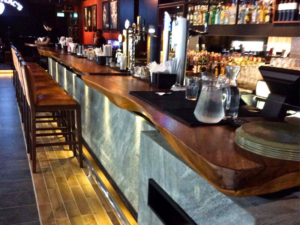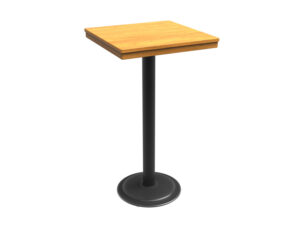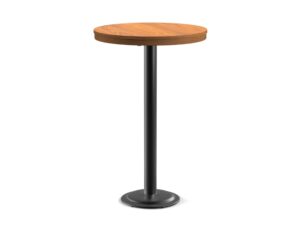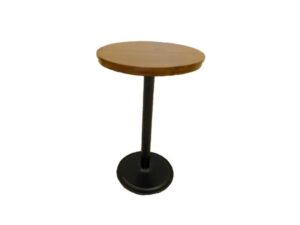Description
Phenolic Table Tops: A Comprehensive Overview
Introduction
Phenolic-Table-Top represents a sophisticated, durable, and versatile option in the world of furniture design and manufacturing. These table tops, known for their durability and sleek design, find wide usage in commercial, laboratory, and residential settings.
What is Phenolic Resin?
Phenolic resin, also known as phenol formaldehyde resin, is a synthetic polymer obtained by the reaction of phenol with formaldehyde. This material is one of the oldest synthetic polymers, developed in the early 20th century. The resulting product is a hard, thermoset plastic that exhibits excellent heat resistance, electrical insulation properties, and mechanical strength.
Manufacturing Process
The manufacturing process of phenolic table tops involves several steps:
- Impregnation: Paper or fabric layers are impregnated with phenolic resin. These layers form the core material.
- Layering: Multiple layers of impregnated material are stacked together to achieve the desired thickness. The top layer can be a decorative sheet, often made of melamine, which provides a smooth and attractive finish.
- Curing: The stacked layers are subjected to heat and pressure in a press. This process causes the resin to polymerize, creating a hard, durable, and homogeneous material.
- Finishing: They cut the cured material to size and finish it with various edge treatments and surface coatings to enhance its appearance and durability.
Properties of Phenolic Table Tops
Their exceptional properties make phenolic table tops ideal for demanding environments.
- Durability: Phenolic resin creates a tough, impact-resistant surface that withstands heavy use without chipping or cracking.
- Heat Resistance: These table tops can tolerate high temperatures, making them suitable for use in kitchens, laboratories, and industrial settings.
- Chemical Resistance: The non-porous surface of phenolic table tops resists stains and is impervious to a wide range of chemicals, including acids, alkalis, and solvents.
- Moisture Resistance: Phenolic resin’s waterproof nature makes these table tops ideal for humid or wet environments, such as bathrooms and outdoor settings.
- Hygienic Surface: The smooth, non-porous surface is easy to clean and does not harbor bacteria or mold, making it suitable for healthcare and food service applications.
Applications
Phenolic table tops are incredibly versatile and find applications across various industries:
- Commercial Use: Restaurants, cafes, and hotels favor phenolic table tops for their durability and ease of maintenance. They can withstand spills, frequent cleaning, and heavy use without losing their appeal.
- Laboratories and Healthcare: The chemical and heat resistance of phenolic tops make them ideal for laboratories, hospitals, and clinics. They provide a sterile and robust work surface that can endure harsh conditions.
- Educational Institutions: Schools and universities use phenolic tables in classrooms, labs, and cafeterias due to their resilience and low maintenance requirements.
- Residential Use: Homeowners appreciate phenolic table tops for their modern aesthetic and practical benefits. People use them in kitchens, dining rooms, and outdoor spaces where durability is paramount.
- Industrial Settings: In manufacturing and industrial environments, phenolic tops provide a strong, heat-resistant work surface that can handle the rigors of production and assembly tasks.
Design and Customization
Phenolic table tops are available in a variety of colors, finishes, and textures, allowing for significant customization to suit specific design requirements. Manufacturers can print the top layer with various patterns, including wood grains, solid colors, or abstract designs, providing aesthetic flexibility.
Edge treatments can vary from straight and beveled edges to more complex profiles, enhancing both the functional and aesthetic aspects of the tabletop. Manufacturers can produce custom sizes and shapes to fit unique spaces and applications, making phenolic table tops a versatile choice for designers and architects.
Maintenance and Care
Maintaining phenolic table tops is straightforward due to their resistant properties. Regular cleaning with mild soap and water is typically sufficient to keep the surface looking new. Use non-abrasive household cleaners for tougher stains without damaging the surface. Periodic inspection and maintenance of the edges and mounting hardware ensure the longevity and stability of the table tops.
Environmental Considerations
Petrochemicals derive phenolic resins, raising concerns about their environmental impact. However, manufacturers are increasingly adopting more sustainable practices, such as recycling and using renewable energy sources in production. The long lifespan and durability of phenolic table tops also increase their environmental efficiency, as they require replacement less frequently than less durable materials.
Conclusion
Phenolic table tops offer a blend of durability, functionality, and aesthetic appeal that makes them an excellent choice for a wide range of applications. Their resistance to heat, chemicals, moisture, and physical impact ensures they can withstand the rigors of both commercial and residential use. With advancements in manufacturing and design, phenolic table tops continue to evolve, providing even greater versatility and performance for various industries and environments.









Reviews
There are no reviews yet.